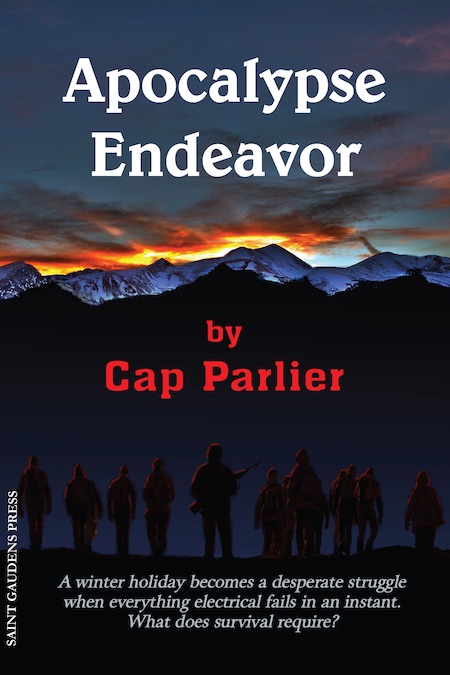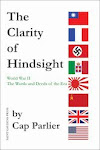Update from the Heartland
No.461
11.10.10 – 17.10.10
To all,
As most readers of this humble forum and folks who know me recognize, there are hot-button topics guaranteed to light me up; one of those topics is children. I have argued long and hard for increasing parental accountability by orders of magnitude with the objective of parents taking control and teaching their children properly to be peaceful, respectful, law-abiding citizens. I have also walked a thin, sometimes fuzzy, precarious line trying to find balance between keeping government out of our private lives and concomitantly protecting children from abusive parents (by action, complacency or neglect). Two things certain to raise my anger are: 1.) un-seat-belted children wandering around the back seat or back & forth to the front seat in a car at highway speeds, and 2.) an adult smoking inside a car with the windows closed and children present. All of my youth, I believed I was highly prone to car sickness – a virtual certainty when my family drove through the Coast Range of California from Gilroy to Los Banos, enroute to the center of gravity of my familial heritage. It was not until I started flying that I realized my habitual bouts of nausea were not from the motion of the car, but rather from my parents smoking cigarettes in the closed car. Since that epiphany, I have born little tolerance for parents who smoke around children for a host of reasons – bad example, damage to a child’s long-term health, and adverse reactions (like mine). Children are virtually powerless and at the mercy of abusive parents. Yet, despite my personal revulsion to such conduct, we are presented with the dilemma of balance – a child’s health & welfare versus parental rights in the light of the aforementioned accountability standard. I defend and indeed advocate for a citizen’s right to choose, including those choices that harm themselves like smoking or drug abuse; however, I condemn any collateral damage a citizen’s choices have on any other person especially children, or property for that matter.
The follow-up news items:
-- On Monday, the Geron Corporation of Menlo Park, California, announced that the Food and Drug Administration had approved a controversial, groundbreaking, therapeutic study involving Human Embryonic Stem Cells (HESC) [146 et al]. The first partially paralyzed patient had the site of his spinal cord injury injected with millions of HESC. The objective is regeneration of nerves and the spinal column. While this is the first known therapeutic use of HESC, the announcement does not ring the bell for me. Perhaps the doctors among us have more information and can offer comment.
-- On Tuesday, the Obama administration announced that it is lifting the moratorium on deep-water oil drilling [445], after putting in place new rules intended to tighten safety. The healing from the BP well blowout disaster continues.
-- After U.S. District Court Judge Virginia Phillips declared the military’s “Don't Ask, Don't Tell” policy [PL 103-160] [312, 408] unconstitutional – Log Cabin Republicans v. United States [USDC CA(CD) case no. cv-04-08425-VAP (2010)] [456/7] – both sides presented their arguments for and against the judge’s temporary injunction. On Tuesday, Judge Phillips issued a permanent and final injunction against the Defense Department’s enforcement of the policy. The administration is reportedly considering whether to appeal to the Supremes. The Defense Department study results are due next month. As much as I have advocated for ending society’s (and the military’s) discrimination against non-heterosexual citizens, judicial pronouncement is not the way I would prefer this to happen. It took more than a century to end discrimination against citizens based on their skin pigmentation. Hopefully, it will not take that long to end discrimination against citizens based on their sexual orientation or sexual identity. I agree with the President that this level of change should be carried out by Congress – the representatives of We, the People – yet, how long can a segment of our citizenry be denied equal rights under the law?
Well, bummer; I did not make the Gate 1 cut again this year for the Washington Post’s America’s Next Great Pundit Contest. As noted earlier [459], here is my losing entry:
Inevitable! The government wants expanded powers to intercept Internet communications. Law enforcement and the Intelligence Community (IC) seek congressional sanction requiring Internet Service Providers (ISPs) to be prepared for “wiretap” warrants when issued. The bad guys have learned that wireless and conventional telephonic communications media are not safe for them, so they have turned to the anonymity of the Internet.
Oh my, the conundrum we face in the light of Benjamin Franklin’s admonition.
The security services deserve all the tools necessary to fight a determined enemy. However, we have also seen far too many transgressions beyond the intent of the law both before and after the findings and outcome of the Church Committee (1975/76).
As Justice Thomas noted, “The ‘starch’ in our constitutional standards cannot be sacrificed to accommodate the enforcement choices of the Government.” After all, the government, especially those entrusted with utilizing the power granted them by We, the People, is made up of flawed human beings, as we all are; thus, the essential purpose of our checks and balances system of governance. By its very nature, intelligence work demands the utmost secrecy to be effective, which in turn counters the reasonable and proper, independent oversight process.
Our laws and jurisprudence are not current for the methods and exigencies of contemporary warfare. The government is precisely correct to seek new laws to fill in the gaps and fix the deficiencies. Our freedom and rights are at stake and demand our utmost vigilance and participation in the legislative process of upgrading our laws. We must find the means to allow the IC maximum interception and analysis capability with a firewall filtration process that allows action-able intelligence to pass for the covert operatives, combat forces and law enforcement to utilize while preventing abusive uses for political or non-operational purposes.
When a sitting governor or other public official can be taken down by innuendo derived from intelligence collection beyond the law enforcement restraints, we should all be afraid of the power of the State. After all, that same power can be focused on any citizen at the whim and choosing of those in possession of relevant information. If we cannot create a workable firewall, then we should all say no to granting more intrusive power to the State. There can be no compromise. Freedom is far too precious and yet so fragile.
An interesting spot of history:
“One Nation, Indivisible -- The Pledge of Allegiance was drafted in two hours on a sweltering August night in 1892”
by Melanie Kirkpatrick
Wall Street Journal
Published: October 11, 2010
http://online.wsj.com/article/SB10001424052748703735804575536041452086002.html?mod=djemEditorialPage_h
As an engineer, I marvel at accomplishments of building – the A380 double-decker airliner, or the Hoover Dam Bypass Bridge. We (or rather I should say “I,” so as not be so presumptuous) bear witness to two rather awesome drilling engineering events: 1.) hitting a specific, precise spot the size of a volleyball 17,000 feet below the Earth’s surface, and 2.) drilling a 21-inch diameter hole 2,300 feet into rock to the corner of the room-sized compartment. The latter feat yielding the rescue of 33 miners, trapped in rock for 69-days underground, after the collapse of the San Jose gold & copper mine in Copiapo, Chile. We also bore witness to a Chilean government that facilitated the rescue quickly and effectively, without quibbling over politics or who got credit.
¡Buena ¡Viva Chile
More than a few folks rail against the impositions of technology from the speed of life, to intrusion upon our privacy and stealing the innocence of our children. While we strive to constrain technology to some modicum of positive net value, I am reminded of the awesome power of the Internet. We learn that we are not alone with our idiosyncrasies, and we have access those instruments of State that have affected our lives since birth about which we remained largely, if not wholly, ignorant. When the Comprehensive Drug Abuse Prevention and Control Act of 1970 (CSA) [PL 91-513] was initially reported in the press, I thought it was a good move. I was on active duty, and we were embroiled in an unpopular war, serious racial confrontations, and what was perceived as rampant psychotropic drug abuse both in the military and the public in general. I did not use drugs, and I thought those who smoked pot, snorted coke, or popped heroin were wrong, destructive and corrosive. The Internet has given us many benefits, including access to government and the instruments of State as well as the consequences of laws. My opinion of the CSA is not the same today. My curiosity drives me to learn, to understand, and to develop an opinion. The key to sustainment of the CSA has been the Supreme Court’s liberal interpretation of the Commerce Clause. The process began with Gibbons v. Ogden [22 U.S. {9 Wheat.} 1 (1824)]. A pivotal affirming case was Champion v. Ames [188 U.S. 321 (1903); no. 2] {AKA the Lottery Case} – my latest judicial reading. Congress passed the Act of March 2d, 1895, entitled “An Act for the Suppression of Lottery Traffic through National and Interstate Commerce and the Postal Service, Subject to the Jurisdiction and Laws of the United States” [chap. 191; 28 Stat. at L. 963; U. S. Comp. Stat. 1901; p. 3178]. Associate Justice John Marshall Harlan wrote for the Court, “[W]e think the provision regarding the liberty of the citizen is, to some extent, limited by the commerce clause of the Constitution, and that the power of Congress to regulate interstate commerce comprises the right to enact a law prohibiting the citizen from entering into those private contracts which directly and substantially, and not merely indirectly, remotely, incidentally, and collaterally, regulate to a greater or less degree commerce among the states.” The revelation of this century-old decision reminded me of the even older wisdom of Chief Justice John Marshall who observed, “If the states may tax the bank, to what extent shall they tax it, and where shall they stop? An unlimited power to tax involves, necessarily, a power to destroy; because there is a limit beyond which no institution and no property can bear taxation” McCulloch v. Maryland [17 U.S. {4 Wheat.} 316 (1819)] [416]. So it is with any law including the 1903 lottery law – one of a myriad of morality laws that have carved off slices of our freedom. As interpreted by the Supremes, the Constitution via the Commerce Clause authorizes Congress to pass laws like the Act of March 2d, 1895. Yet, the fundamental question is for what purpose? What is the basic public interest in prohibiting interstate commerce of lottery tickets? Congress may have the authority, but was it right for Congress to exercise that authority. Is it right for us to deny the freedom of choice that causes no harm to other citizens? It is long past time for the State to back away from the private morality business. The State must focus on the public domain and allow all citizens the freedom of their choices – good ones, bad ones, wrong ones, rights ones, their choices. We should not deny freedom of choice to other citizens simply because we disapprove of their choices. Freedom is about choices.
In the shadow of my parental responsibility diatribe above, we were notified that the Supreme Court intends to hear the appeal of a rather unusual 4th Amendment case – Greene v. Camreta [9CCA no. 06-35333 (2009)] – so, I preemptively read the Circuit Court’s decision. Without going into a lengthy explanation, let it suffice to say the essence of this challenge rests upon the intertwining of social services and Law Enforcement (LE) and the removal of an elementary school child from class for interrogation without parental consent or involvement. The catalyst was accusations of child abuse. The court decided the mother’s constitutional rights had been violated and remanded the case back to the district court for further adjudication. The complication in this case involved the rapid escalation to LE that tends to cause so much of the zealous prosecution that afflicts the process. Some level of quasi-official examination / investigation short of LE is required, along with metered criteria for escalation. This case appears to be one of the excessive escalations that cause so much fear in parents. This is like all or nothing, when simple recognition and education might have been more appropriate. How does the system account for differing attitudes regarding sex and sex education of minor children? Why do we allow the threshold of criminal conduct to be defined by the lowest common denominator? While Nimrod Greene (the father) is certainly no saint, the evidence provided does not convince me that he is the predatory, pedophilic, sex offender he is convicted of being . . . to be branded and condemned for life. How much longer must we tolerate the enormous collateral damage inflicted upon on citizens to aid the one truly abused child? Our laws must evolve to be more precise and surgical, rather than so broadly indiscriminate as they are today. I suspect the Supremes will agree with the 9th Circuit in this instance. Yet, even if they do, we remain a long way from more rational and realistic laws regarding children and sex.
News from the economic front:
-- The Commerce Department reported the U.S. trade deficit expanded in August to US$46.35B. Overall U.S. imports grew 2.1%, while exports rose only 0.2%. The relationship with the People’s Republic of China (PRC) continues to dominate the trading equation. The PRC’s predatory monetary policy adversely impacts all their trading partners. The upcoming Group of 20 nations meeting may yield some progress, but I doubt it.
-- The Commerce Department also reported initial unemployment claims rose by 13,000 to 462,000 in the latest week. Producer prices rose 0.4% in September from the previous month.
-- Federal Reserve Chairman Bernanke indicated that the central bank was prepared to take additional steps to stimulate economic recovery in the face of persistently low inflation and high unemployment. He also suggested that the Fed was prepared to manage the risks associated with buying up large purchases of government debt and lower long-term interest rates.
Comments and contributions from Update no.460:
Comment to the Blog:
“I followed your link and read the article ‘Terrorism, Vigilance and the Limits of the War on Terror’ by George Friedman. It struck me as a focused and authoritative example of a premise of mine that ‘wars’ on concepts (drugs, poverty, terrorism) cannot be won.
“In a slightly different situation, I would be the driver in front of you doing the speed limit as I pass a driver in the outside lane who is driving more slowly. I would appreciate your respecting me enough to not tailgate me while I complete my maneuver. ‘Respect’ is defined individually, I guess.
“Exactly how a book can become an apellee mystifies me. The only related thought I can find is that the book might be legally related somehow to objects (cars, houses, money) that are seized as suspects in drug cases. The people who own the objects need never be convicted, or even charged, for the objects to become the property of the law enforcement agency that seized them. This procedure has become a source of cars and income for some agencies.”
My reply to the Blog:
Put in the context you have used, we agree. War against concepts, thoughts or ideas is destined to failure. However, Islamo-fascism is a destructive, oppressive ideology that is the antithesis of freedom. The issue is not Islam; we should not try to suppress, defeat or isolate Islam; Islam is NOT the enemy. I believe Muslims can live peacefully, tolerantly and acceptably in a free, secular society. However, the fundamentalist radical Muslims (much like fanatics of other religions) have ideologically chosen not to assimilate and adapt; they seek domination of their particular interpretation of religious dicta. Religion is a particularly nasty cause for war; both sides truly believe they are acting on God’s directives, which I categorically and fundamentally reject and condemn; therefore, compromise is not an option.
My issue is not and never has been about drivers who use the fast lane to pass. I am one of those drivers as well. My issue is with those who seem to defiantly and stubbornly remain in the fast lane at a slower-than-flow speed with the traffic ahead of them pulling away. I respect others on the road. I would hope that the highway obstructionists would likewise respect others who wish to stay with the flow of traffic.
Book as appellee mystifies me as well, which is one of many reasons I was drawn to that case . . . and unfortunately, I still do not understand how that case got before the Supreme Court, or who argued on behalf of the appellee? To the best of my knowledge, the property seizure phenomenon is an adjunct to the Controlled Substances Act of 1970 (CSA). Law Enforcement (LE) agencies authorized to unilaterally, without due process, seize property of suspected drug dealers of any magnitude – one of a plethora freedom transgressions of the CSA & subsequent affiliated laws. Thanks again, Richard Nixon.
. . . a follow-up comment:
“The point of Friedman's article, at least as I read it, it that we cannot reasonably expect victory in this ‘war.’ We can expect a certain level of suppression, and that's a reasonable cause, but we will never achieve a total ‘victory,’ as we would seek in a declared war against a nation. Nothing directly to do with Muslims; we have home-grown terrorists, and so do many other nations.
“You are one of many drivers who believe they have a right to break speed laws. Of course, I see that as disrespectful and dangerous, but I realize that I am in a small minority on this one.”
. . . my follow-up reply:
Well, as is so often the case, whether we win or lose the War on Islamic Fascism depends upon the definition of “winning.” The traditional metrics of war are no longer valid, since our enemy is a trans-national, state-less group of radical religious fanatics who hold no compunction about using terror to kill thousands of innocent people, presumably to achieve their objectives, i.e., domination of their form of fundamentalist Islam over other peoples regardless of their beliefs or choices. Winning to me would be denial of safe haven to al-Qaeda and its affiliates.
Oh my, that is rather presumptive, doncha think? To be candid and forthright, I try to restrict my speed to the posted limit plus the assumed margin. My issue [460] is not with driving faster than the speed limit, only with respect for others and the flow of traffic. I travel that stretch of highway after hours or on weekends, and I set my cruise control at speed limit plus a little; no traffic. When traffic thins during the weekday morning commute (as it occasionally does), I limit my speed; when others seek to go faster than the flow, I move over to let them pass; I do not want to be the fastest car on the road. My ire focuses upon staying with the flow of traffic, and sometimes that flow exceeds the speed limit plus margin. I hold no assumption whatsoever that I (or anyone else) has a right to exceed the speed limit. Conversely, no citizen has the right to impede the flow of traffic either. A citizen can choose to drive 20 mph or less under the posted speed limit; that is his choice entirely; just don’t obstruct others who choose to drive faster.
Another contribution:
“That reminds me of similar experiences living and commuting in the Chicago suburbs. That section of Rt90 gets a lot of traffic. I encountered a driver who in the left (fast) lane had his cruise control obviously set in that 3 to 5 mph over the posted limit. And he was just as obviously not giving up his lane to faster traffic. On my 4th attempt to get around him in the right (slow) lane, the red lights came on and I was sure I was going to get a ticket. To my surprise the officer pulled in behind my ?? friend.”
My response:
There are a million stories in the Naked City.
Last spring, I experienced a similar situation on my morning commute. I was behind a car doing just a few miles per hour over the speed limit. A new, red, Dodge Charger was following me. A short gap opened in the middle lane. Two yayhoos blasted off into the gap from behind the Charger, around all of us, and darted into the fast lane just in front of the car ahead of me. The Charger lit up his internal red & blue flashing lights. We moved over, and he took off after both of the impatient ones. Got ‘em both to the side of the road about a mile ahead. Justice does come . . . eventually. That was a good day. I have not seen that red Charger since then.
Another contribution:
“I believe I wrote several months ago that this is a war of religion not politics. We have not/cannot learn how to deal with those who threaten our Christian and Jewish heritages: we are going to suffer greatly because of it. We will be nailed to the cross of political correctness-be it in religion, environment, or politics.”
http://www.humanevents.com/article.php?id=39366
My reply:
Our objectives in the current War on Islamic Fascism are not religious in nature or substance. I believe the contemporary struggle is precisely about freedom. The fact that our enemy seeks to subjugate free citizens to the oppression of their religion does add a religious tint to this war.
My very best wishes to all. Take care of yourselves and each other.
Cheers,
Cap :-)



















